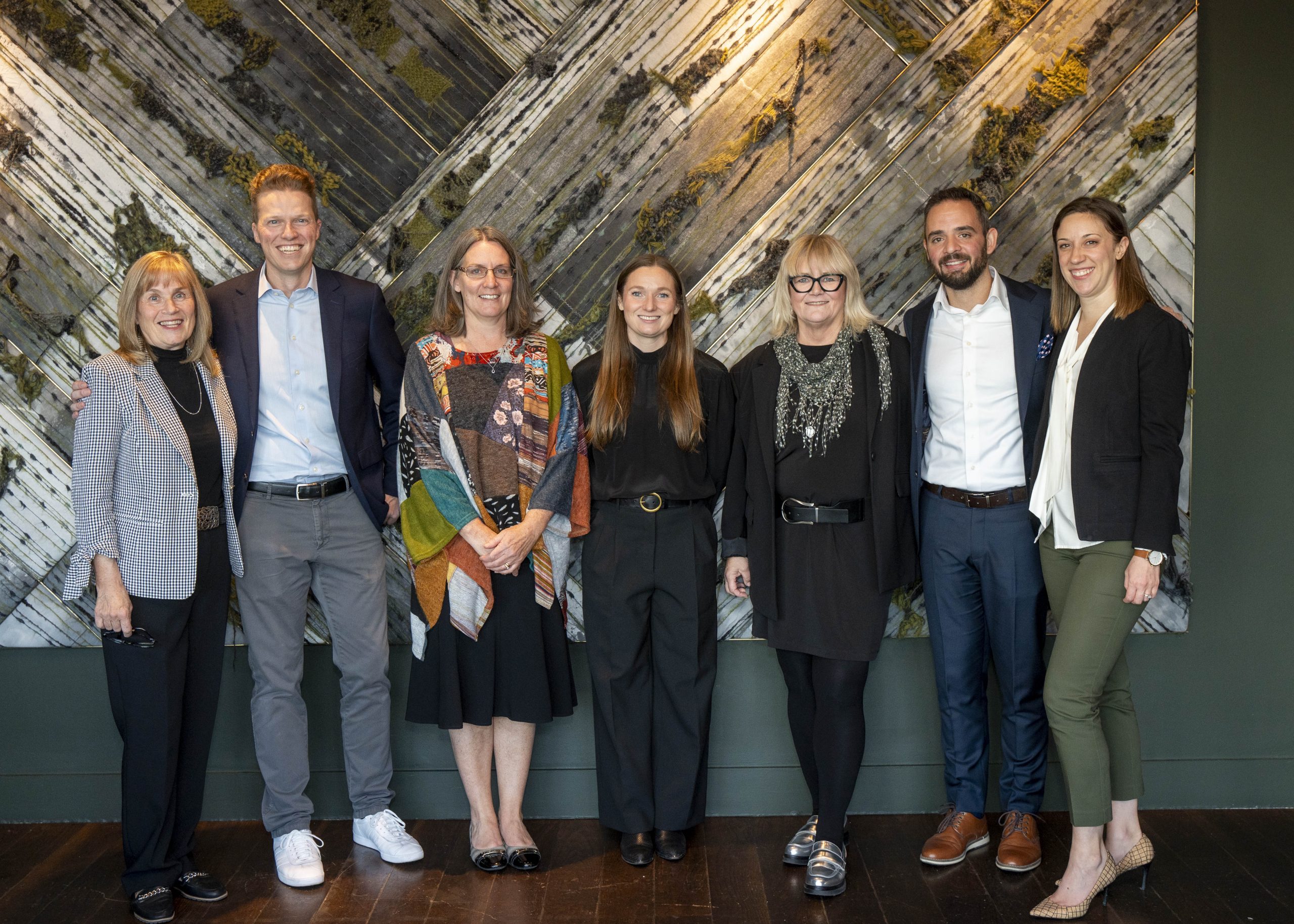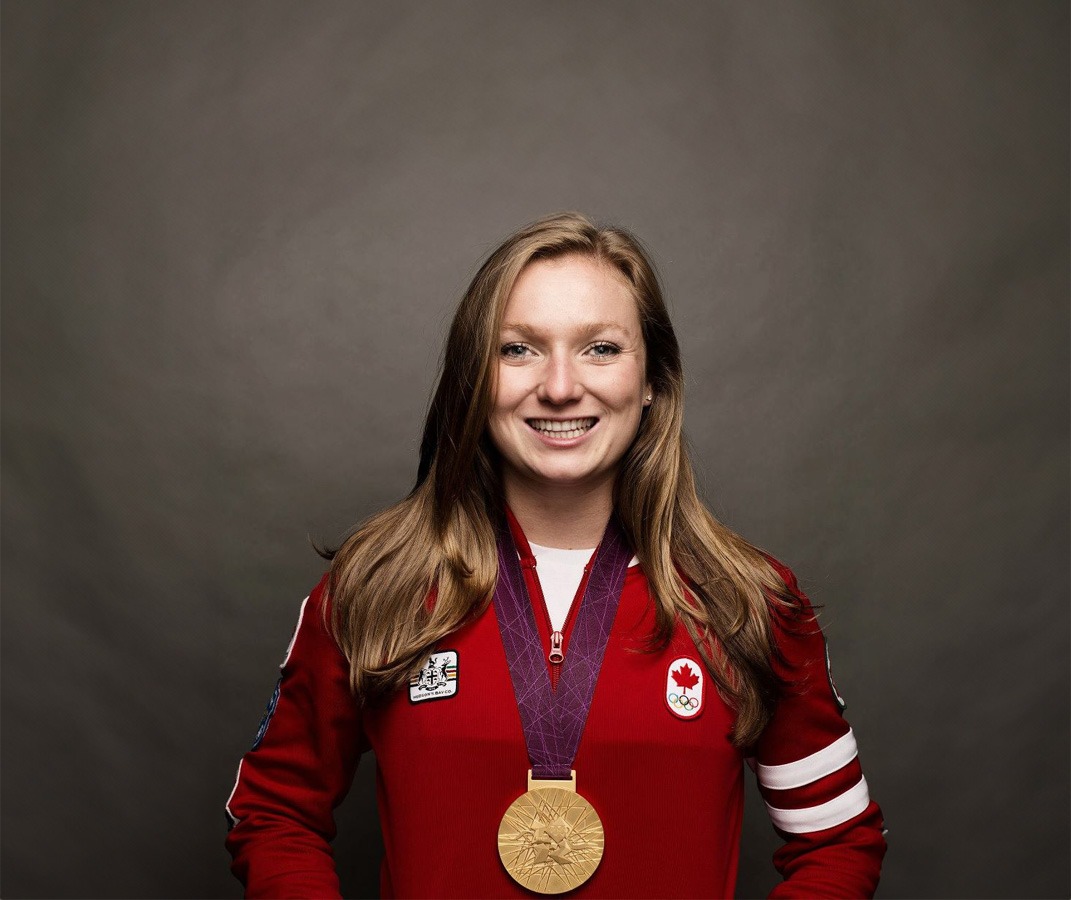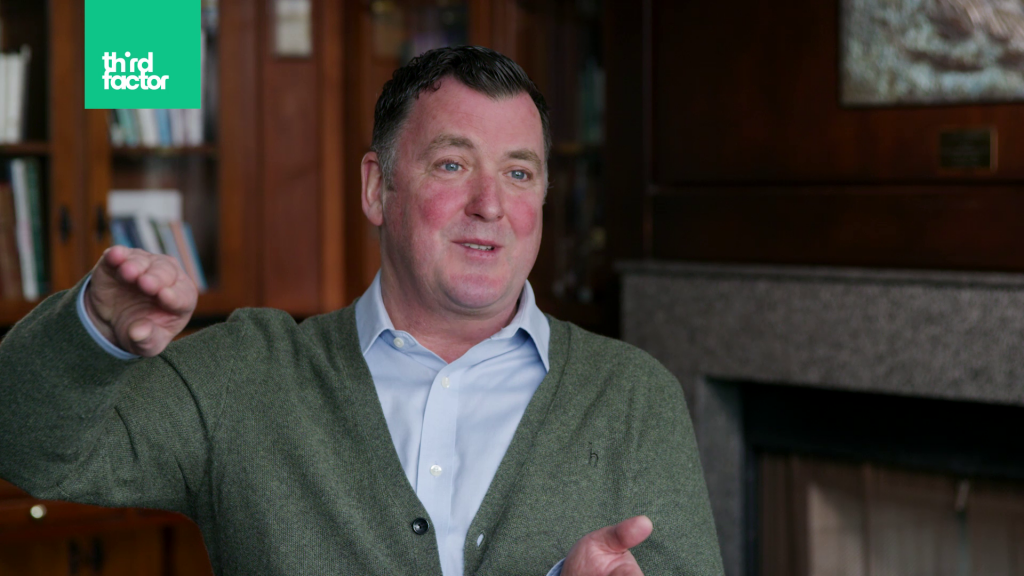Rosie MacLennan is a powerhouse: she was the first Canadian athlete to defend a gold medal at a summer Olympics by winning back-to-back golds in trampoline in 2016 and 2020, she served as the Chair of the Athletes Commission at the COC and fought tirelessly for safe sport, and she has an MBA from Stanford.
We were fortunate enough to have Rosie join us at our annual Third Factor client dinner a short time ago, where she shared a behind-the-scenes look at her path to Olympic triumph, the significant challenges she faced on the journey, and the tools she used to help overcome them.

Here are three lessons from Rosie’s talk that can help anyone striving for their own version of a gold-medal performance.
1: Confront failure head-on
One of Rosie’s most interesting insights was slightly counter-intuitive: when the fear of failure is strong, don’t shy away from it – lean into it. Ahead of the Olympics, Rosie consciously worked to confront the possibility of failure directly, and work through her worst-case scenario in vivid detail.
“By confronting the possibility of failure, you can free yourself from its grip.”
In partnership with her mental performance coach, Rosie sat down and played out two scenarios: what if things go well and I win? And, what if I stumble and fail? With these two scenarios in mind, she vividly worked through how she would feel and what her life would be like: 1 day after, 1 week after, 1 month after, 1 year after, and, eventually, 5 years post-Olympics.
Rosie’s realization? Ultimately, the outcome at the Games would have little impact on her life 5 years down the road. Regardless of the outcome she would be okay.
This mental exercise allowed Rosie to remove the distraction of fear from her preparation. By confronting failure head-on, she could redirect her energy from worrying about what could go wrong to focusing on what she could control.
Whether you’re preparing for a major presentation, launching a new business venture, or pursuing a personal goal – instead of trying to avoid thinking about failure, take the time to visualize the negative scenario. When we “play out the full movie” what we often find is that the fear comes from the fact that we are just imagining a moment in time – an incomplete thought or image that doesn’t reflect the fullness of time. By confronting the possibility of failure, you can free yourself from its grip and focus entirely on performing at your best.
2: Embrace direct feedback
Rosie’s coach, Dave Ross, is known for a style that is extremely candid. While some athletes balked at his bluntness, Rosie saw something deeper: a genuine commitment to helping her succeed. She understood that behind his straightforward critiques was a profound belief in her potential. Instead of resisting his feedback, she consciously worked to lean into it, using it as information to unlock higher levels of performance.
This ability to harness the value in blunt feedback came from her taking the time to understand Dave as a person. She took the time to look beyond personality and style to understand his values and ultimately his character. These insights didn’t just unlock her own performance, they also allowed her to help other athletes shift their perspective on Dave’s feedback by sharing her insights into what was behind his style.
When you find yourself chafing at direct feedback, consider the intent of the person delivering it. Where are they coming from? What are they trying to help you accomplish? Often, others are trying to help – even when their wording or approach might trigger some reactivity.
3: Use visualization to overcome obstacles
In the lead-up to the Tokyo Olympics, Rosie faced a daunting challenge: a series of serious ankle injuries that left her unable to perform her trampoline routine for weeks. In fact, she was unable to practice her full routine until one day before leaving for the Games.
“When we imagine something with enough vivid detail – to our body, it’s real.”
Rather than letting this setback derail her preparation, Rosie turned to the power of imagery and visualization. Unable to train physically, she trained mentally.
This started with simply imagining herself bouncing on the trampoline again. She shared that, initially after the injury, every time she would close her eyes and visualize jumping on the trampoline – she would see herself falling. With effort and (mental) practice, she was able to start to imagine herself jumping with confidence, and eventually to visualize her entire routine in vivid detail.
Remarkably, Rosie finished 4th at the Tokyo Olympics— less than a single point off of the podium featuring the best athletes on the world, all of whom had been training regularly, despite having been unable to physically practice until a single day prior to travel.
When we imagine something with enough vivid detail – to our body, it’s real. Some studies estimate that for elite athletes, mental rehearsal delivers roughly 85% of the benefits of physical rehearsal. Rosie’s experience certainly backs up that research.
Visualization isn’t just for elite athletes. It’s a tool anyone can use to prepare for high-stakes situations —whether it’s a speech, negotiation, or exam—spend time visualizing your performance. Imagine every detail: the environment, your actions, and the desired outcome. This mental preparation can help you feel more confident and prepared when the moment arrives.
Bringing it all together
Rosie MacLennan’s journey to Olympic success is more than a story about athletic achievement. Her approach to confronting failure, embracing feedback, and harnessing the power of visualization provides lessons that can help all of us.
Here’s a challenge: think about your own version of a “gold medal performance.” What are you striving for in your career, relationships, or personal growth? Now, consider how you can apply Rosie’s three strategies:
Confront failure head-on: What’s holding you back? Imagine the worst-case scenario to start to rob it of its power.
Embrace direct feedback: Who in your life is pushing you to be better? How can you listen with an open mind and use their insights to grow?
Use visualization to your advantage: What mental rehearsals can you do to prepare for your big moment?





